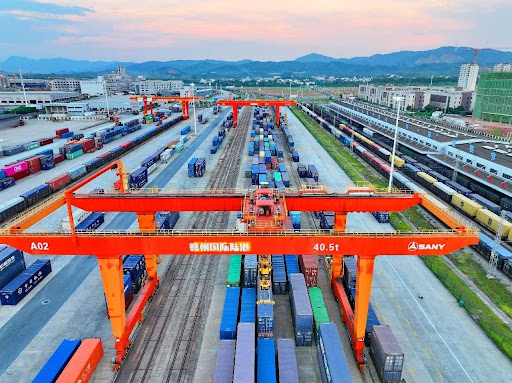China’s opening-up injects momentum into world economy: Pakistani Expert
BEIJING: “China’s modernization is one of the most remarkable transformations in human history—a journey that has not only reshaped the nation’s destiny but has also become a beacon of hope for the developing world,” highlighted Zafaruddin Mahmood, President of the Lahore-based think tank Understanding China Forum (UCF) and former Special Advisor to the Pakistani Prime Minister, during the 2024 Understanding China Conference (Guangzhou) from December 2 to 4.
The conference, themed “Carry Through the Reform to the End: Chinese Modernization and New Opportunities for World Development,” aimed to infuse Chinese wisdom and the power of the times into the volatile and ever-changing global landscape. Over 600 Chinese and international delegates from politics, strategy, business, academia, and think tanks participated in the event, serving as a platform for the world to comprehend China’s long-term economic development plans, CEN reported on Friday.
Zafaruddin, who has lived and worked in China for over four decades—from his student days in 1976 to his roles as Economic and Commercial Counselor at the Pakistani Embassy in China, Special Envoy for the China-Pakistan Economic Corridor, and founder of the UCF—praised China’s opening-up policy. “Every tiime I come to China, I witness new developments,” he shared. “China’s high-level opening-up is giving a boost to the world economy.”
He emphasized that China provides a driving force for global development. “Most people in the world have used Chinese products, which shows China’s tremendous impact on the world economy,” he said. With the rapid development of Chinese technology, apps like WeChat have entered the lives of Pakistanis, and the threshold for technical services has been lowered considerably.
China’s rapid industrialization has made it the “factory of the world,” producing a wide range of goods, from basic consumer items to cutting-edge technology. Companies such as Huawei, Alibaba, and BYD have become global leaders, reshaping industries and setting new benchmarks for innovation.
Moreover, China’s modernization is deeply intertwined with its commitment to environmental sustainability. “China has pivoted toward a green development model and is now the world’s largest producer and consumer of renewable energy,” Zafaruddin noted.
With significant investments in solar, wind, and hydropower technologies, China’s ambitious goal of achieving carbon neutrality by 2060 is not just a national commitment but a global responsibility.
Citing Pakistan as an illustration, Zafaruddin said, “Chinese solar products are inexpensive and highly prevalent in Pakistan. Almost every household uses Chinese solar products, and I have them installed at my home too.” He added that Chinese new energy vehicle companies plan to set up factories in Pakistan, and African countries like Kenya have purchased Chinese electric vehicles. “China’s energy innovation has made significant contributions to the world economy,” he said.
“China’s modernization journey is not just about achieving national greatness; it is about contributing to global progress,” he added. From leading the fight against climate change to advancing technologies that benefit humanity, China is shaping a future defined by collaboration and shared prosperity. Initiatives like the Global Development Initiative and the Belt and Road Initiative reflect China’s commitment to building a shared future for humanity.

